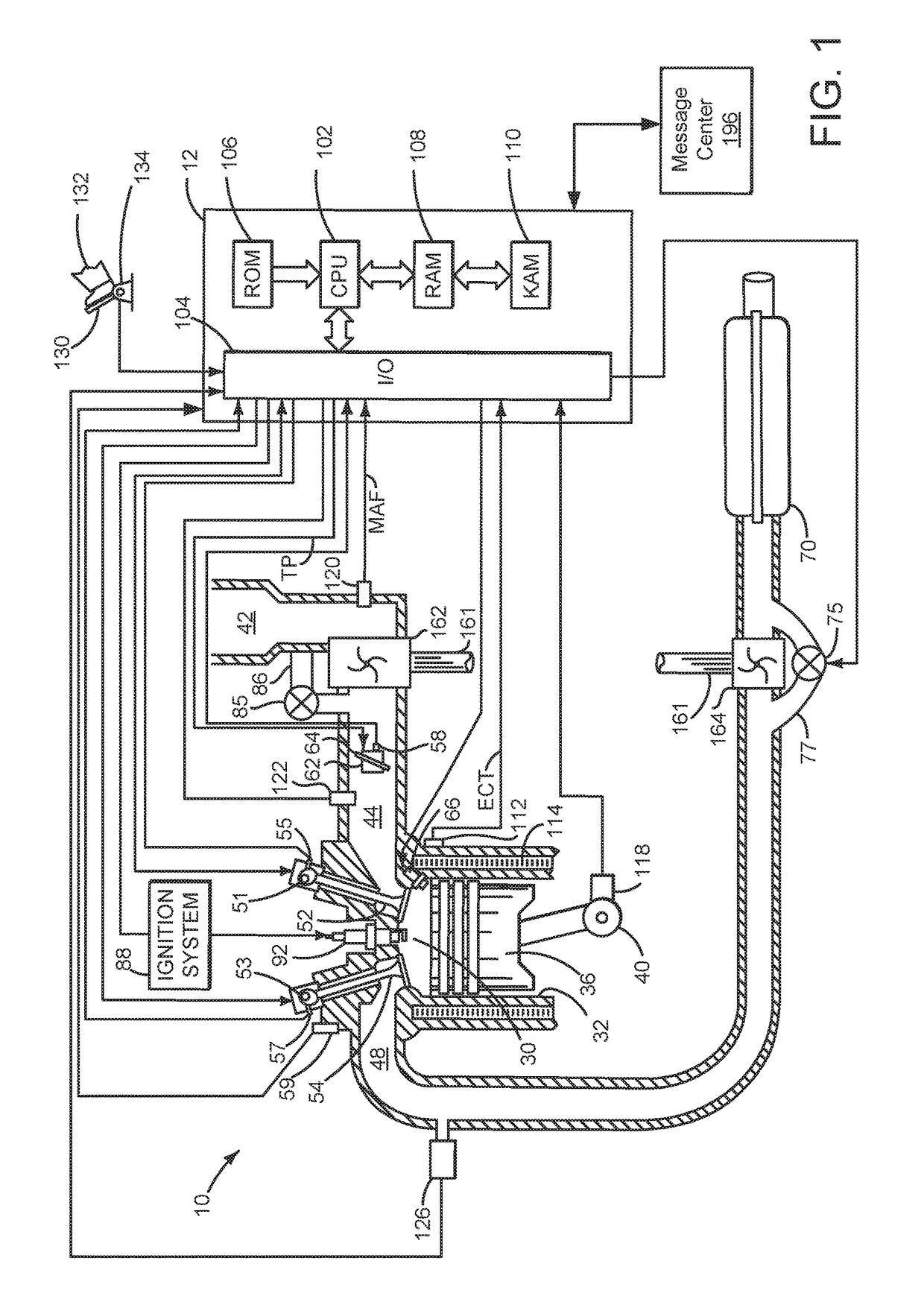Reducing turbocharged engine overheating
- Summary
- Abstract
- Description
- Claims
- Application Information
AI Technical Summary
Benefits of technology
Problems solved by technology
Method used
Image
Examples
Embodiment Construction
[0017]The present description is related to a method of deactivating one or more engine cylinders while limiting engine load in response to coolant loss in a turbocharged engine. In one example, the method comprises deactivating one or more engine cylinders while limiting load of one or more active cylinders while maintaining an engine speed below a threshold engine speed and while maintaining an engine cylinder temperature below a third threshold temperature. In this manner, engine cylinder overheating can be mitigated while maintaining vehicle driveability and vehicle operability over a range of engine operating conditions.
[0018]FIG. 1 illustrates an example of a turbocharged engine, including an intake compressor, exhaust turbine, waste gate and engine controller. FIG. 2 illustrates an example of an exhaust manifold temperature sensor that may be used to provide an indication of engine cylinder head temperature. FIGS. 3-5 are example plots of cylinder head temperature vs. engine ...
PUM
 Login to View More
Login to View More Abstract
Description
Claims
Application Information
 Login to View More
Login to View More - R&D
- Intellectual Property
- Life Sciences
- Materials
- Tech Scout
- Unparalleled Data Quality
- Higher Quality Content
- 60% Fewer Hallucinations
Browse by: Latest US Patents, China's latest patents, Technical Efficacy Thesaurus, Application Domain, Technology Topic, Popular Technical Reports.
© 2025 PatSnap. All rights reserved.Legal|Privacy policy|Modern Slavery Act Transparency Statement|Sitemap|About US| Contact US: help@patsnap.com



